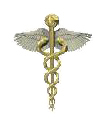Most Americans Want Health Care Reform
Many are frustrated with the inefficiency and cost of the current system, survey finds.
By Steven Reinberg
HealthDay Reporter
|
E-mail this article
Subscribe to news
Printer friendly version
|

(SOURCES: Cathy Schoen, senior vice president for research and evaluation, The Commonwealth Fund, New York City; Kathleen D. Stoll, director, health policy, Families USA, Washington, D.C.; Steffie Woolhandler, M.D., associate professor of medicine, Harvard Medical School, Boston, and co-founder, Physicians for A National Health Program; Aug. 7, 2008, Commonwealth Fund reports, Public Views on U.S. Health Care System Organization: A Call for New Directions, Organizing The U.S. Health Care System for High Performance
)
THURSDAY, Aug. 7 (HealthDay News) -- The vast majority of Americans are dissatisfied with the U.S. health care system, and 82 percent think it needs to be overhauled, a new survey found.
"There is a broad view by the public that our health care system needs a full overhaul, either to be totally rebuilt or reformed," said Cathy Schoen, senior vice president for research and evaluation at The Commonwealth Fund, which commissioned the survey.
The survey, titled Public Views on U.S. Health Care System Organization: A Call for New Directions, questioned 1,004 adults on their views of the U.S. health care system.
The frustration with the current system stems from a shared experience of inefficient and time-consuming care, Schoen said. "Often paperwork doesn't arrive, or your records aren't available when you show up. There are also concerns about getting timely access to care," she said.
Schoen thinks the survey clearly indicates that Americans want better organized care. "Also, having a regular doctor who is available to see you, getting timely referrals, and having more affordable care are important to people," she said.
Nine out of 10 people surveyed said the presidential candidates should propose reforms that would improve the quality of health care, ensure that all Americans have affordable care, and reduce the number of uninsured.
Eight in 10 people said they supported efforts to improve health care performance, access, quality and cost. For example, one in three said their doctors ordered tests that had already been done or recommended unnecessary treatment.
Most of the people surveyed expressed frustration with the way their health care was managed. For instance, 47 percent said their health care was poorly coordinated; this lack of coordination included not being informed about test results and having to make several calls to get the results.
In addition, survey respondents felt that important medical information wasn't shared between doctors and nurses or communicated between their doctor and specialists.
Nine of 10 people said it was important that they have one place or one doctor responsible for their primary care and coordination of all their care. And, nine of 10 wanted easier access to their medical records.
Seventy-three percent said they had difficulty getting a doctor appointment, phone advice, or after-hours care without going to the emergency department. Among insured patients, 26 percent said it was hard to get same- or next-day appointments when they were sick, and 39 percent said it was difficult to reach their doctors by phone when they needed them.
Dr. Steffie Woolhandler, an associate professor of medicine at Harvard Medical School and co-founder of Physicians for a National Health Program, thinks Americans are being ill served, given the amount of money spent on health care in the United States.
"We now spend twice per capita what other developed nations spend on care, yet we die younger, have worse access to care, and are even behind on medical computerization," Woolhandler said. "These survey results are a clarion call for the health financing mechanism used elsewhere -- nonprofit national health insurance."
Kathleen D. Stoll, director of Health Policy at Families USA, thinks the survey reinforces what is already known about Americans' frustration with the current health care system.
"We have seen the number of uninsured rise. We have seen people facing higher out-of-pocket costs. We see layers of complications in terms of billing problems," she said. "All that adds up to an American public that is quite ready for health care reform."
In a separate report titled Organizing the U.S. Health Care System for High Performance, The Commonwealth Fund outlined its strategies for improving the health care system.
Among the recommendations was moving away from fee-for-service payments and paying doctors and hospitals based on the quality of care. In addition, the report recommends patient incentives that reward them for choosing doctors and hospitals that provide the most efficient, highest quality care.
To achieve these goals, the report recommends removing barriers that prevent doctors from sharing essential information; accrediting doctors and hospitals based on quality measures; making patient information more available to doctors at the point of care; and enforcing clear accountability for patient care.
Moreover, doctors and other health care professionals should be trained to work as teams. And, switching to electronic health records should be mandated and supported by the federal government, according to the report.
More information
For more on health care reform, visit The Commonwealth Fund. 
Copyright © 2008 ScoutNews, LLC. All rights reserved. 
HealthDayNews articles are derived from various sources and do not reflect federal policy. healthfinder.gov does not endorse opinions, products, or services that may appear in news stories. For more information on health topics in the news, visit the healthfinder.gov health library.